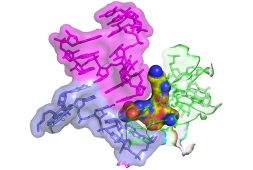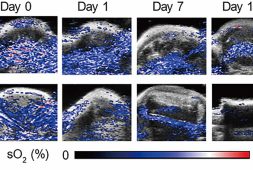Incredible Breakthrough In New Lab Test For Parkinson’s That May Detect The Disease Before Symptoms Show

Parkinson’s disease is a neurological disorder that affects almost one million people in the United States alone. Despite this large number, it has been challenging to say the least when it comes to diagnosing it accurately, especially in its early stages.
However, a significant advancement in Parkinson’s research promises to change all of that. In a groundbreaking study, a large-scale examination confirmed that a laboratory test analyzing brain and spinal cord fluid for clumps of a protein called alpha-synuclein can accurately detect Parkinson’s disease. This even includes individuals without typical symptoms, such as tremors or limited movement.
The study was published in the May 2023 edition of the Lancet Neurology, and it has the potential to revolutionize Parkinson’s diagnosis and treatment as we know it. The results showed that the lab test managed to identify abnormal protein accumulations in 88 percent of all participants with Parkinson’s disease.
Alpha-synuclein, which Parkinson’s Foundation says affects almost one million people in the United States, is a hallmark of the disease.
American actor, Michael J. Fox, is one such individual that suffers from Parkinson’s disease. He started the Michael J. Fox Foundation for Parkinson’s Research, where the alpha-synuclein study is part of the Parkinson’s Progression Markers Initiative (PPMI) of the foundation.
Fox said in a press release, “There are many ways I am involved with the work of the foundation, but I come to this result first and foremost as a Parkinson’s patient. I am deeply moved by this breakthrough and endlessly grateful to the researchers, study participants, and funders who have endeavored to bring us this far. When we started PPMI, we weren’t casting about for fish — we were going after a whale. Now here we are. Together we are making a cure for Parkinson’s inevitable.”
What Exactly Happens in the Brain of a Parkinson’s Disease Patient?
Alpha-synuclein is a protein primarily located at the tips of nerve cells (neurons) in the brain and plays a vital role in neuron function and communication. But for people with Parkinson’s, this particular protein can misfold and form aggregates or “seeds” that lead to further clumping throughout the brain. These abnormal protein accumulations are a hallmark of Parkinson’s disease and contribute to the degeneration of brain cells, leading to the characteristic motor and non-motor symptoms associated with the condition.
Known commercially as SYNTap since the year 2021, the laboratory test has shown amazing accuracy in detecting these alpha-synuclein seeds. The study involved 1,000 participants, including those with Parkinson’s disease, those with specific genetic mutations that are associated with an increased risk of the disease, and even those with prodromal signs of Parkinson’s.
Study co-leader and biochemist Luis Concha, PhD, who is also the director of research and development at the biotech company Amprion, said “The high performance of our assay in such a large number of subjects represents overwhelming evidence that synuclein seeds are a biomarker for Parkinson’s disease and that our SYNTap assay can detect the biomarker for diagnostic purposes.”
Who Was Part of the Study?
The study participants, who were on average between the ages of 62 to 68, included over 500 people with Parkinson’s disease. Almost 400 of them with sporadic disease, where the cause was unknown, while another over 100 with LRRK2 gene mutations, and close to 50 others with GBA gene mutations. These types of mutations are known to increase the risk of Parkinson’s.
Moreover, the study also included over 300 participants with gene mutations but no disease symptoms and over 50 participants with Parkinson’s symptoms but no signs of dopamine deficiencies on brain scans. Normally, those with Parkinson’s have a low concentration of dopamine – a hormone in the brain. When there is a lack of dopamine, it may lead to movement problems such as those seen in patients with Parkinson’s.
The analysis also involved over 50 patients considered prodromal, meaning they had specific early signs that may indicate the onset of the disease beyond those that doctors usually consider in making an official diagnosis of Parkinson’s.
According to the Michael J. Fox Foundation, with Parkinson’s, a loss of smell is a common prodromal sign. REM sleep behavior disorder (RBD) is yet another prodromal sign. RBD typically involves acting out dreams by punching, hitting or kicking and is tied to a significant risk of Parkinson’s, or other comparable neurodegenerative diseases.
This particular research included around 20 people who had lost their sense of smell, and more than 30 who had RBD. The study authors noted that ’88 percent of those with an olfactory deficit and 84 percent of those with RBD showed positive test results for synuclein seeds.
The Accuracy of the Test Depended on the Parkinson’s Mutation Type
The test results showed a variation among the participants with gene mutations in relation to Parkinson’s. The proportion of participants with positive test results was higher for those with GBA Parkinson’s disease (96 percent) and lowest for those with LRRK2 Parkinson’s disease (67.5 percent.)
What this suggests is that not all Parkinson’s cases may be associated with the accumulation of alpha-synuclein aggregation might not be as useful in cases with LRRK2 mutation.
New Lab Test Could Be More Accurate Than Current Brain Imaging Tests
Rebecca Gilbert, MD, PhD, the chief scientific officer for the American Parkinson Disease Association said, “These people had high rates of positivity on this test, indicating that it could be a good test to diagnose Parkinson’s disease prior to the onset of motor symptoms. The data also suggest that detection of alpha-synuclein in cerebrospinal fluid may be positive earlier than a DaTscan.” Notably, the DaTscan is an imaging test for Parkinson’s that assesses dopamine-containing neurons.
Only around 30 percent of at-risk individuals with a positive test result on the alpha-synuclein lab test had significant dopamine loss. This suggests that the new test could possibly identify someone with Parkinson’s disease earlier than DaTscan imaging.
Earlier Parkinson’s Diagnosis Is Always Better
When a patient gets an early diagnosis for Parkinson’s, it may help them make early lifestyle changes allowing their brains to be healthier and more responsive to intervention. While there is no “one size fits all” approach to these lifestyle changes, the American Parkinson Disease Association advises that a schedule of regular exercise can make a big different in a patient’s mobility. Moreover, a healthy diet can help them maintain better strength and promote general well-being.
Dr. Concha explains, “Our main focus has been to offer an accurate test that can shorten the very grim period where patients and their families know there is something wrong but can’t do anything but wait for the next symptoms to show up and confirm the diagnosis.”
The study authors also stress that the test can’t provide a definitive diagnosis all by itself. When the test is positive, a person likely has Parkinson’s or a related alpha-synuclein disorder, such as dementia with Lewy bodies or multiple system atrophy (MSA).
The test on its own cannot differentiate between the diseases, however, it can help doctors make specific diagnoses when used together with other evaluations.
New Tests and Treatments In the Near Future
The alpha-synuclein test needs the extraction of a fluid sample from the spinal (vertebral) canal using a special needle. Dr. Concha and his collaborators are looking into different types of testing that can help detect alpha-synuclein seeds via nasal swabs, blood, and skin biopsy as well.
Dr. Gilbert shares that skin biopsy for the detection of alpha-synuclein is actually already commercially available, however, “it would be great to know whether prodromal people are positive in this test as well.”
The study results could potentially pave the way for drug development, explain the study authors. As Dr. Concha explains, all neurodegenerative diseases tend to have the same challenge: ‘The disease starts years before any symptoms appear, and by the time doctors can make a diagnosis, the damage in the brain is most likely irreversible.’
“Perhaps one day we’ll find an effective way to grow new neurons in our brain that will fully integrate with the rest of the neuronal circuitry and revert the damage. Until then, the best option is to identify subjects very early on and test drugs that can slow down or hopefully even stop the disease at that early stage,” he says.



